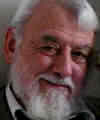Tiempo Climate Cyberlibrary
American Evangelicals and Climate Change
Every now and then significant encouragements emerge
from unlikely places. In early February, the United States
National Association of
Evangelicals (NAE), with 30 million members, stated
that "as evangelical leaders, we recognize both our
opportunity and our responsibility to offer a biblically
based moral witness that can help shape public policy in
the most powerful nation on earth and therefore contribute
to the wellbeing of the entire world... Many of us have
required considerable convincing before becoming persuaded
that climate change is a real problem and that it ought to
matter to us as Christians. But now we have seen and heard
enough."
The statement made four claims: human-induced climate
change is real; the consequences of climate change will be
significant and will hit the poor the hardest; Christian
moral convictions demand our response; and, governments,
businesses, churches and individuals all have a role to
play in addressing climate change – starting now.
These claims were immediately challenged by the Interfaith
Stewardship Alliance, welcoming global warming on the
grounds that it will lead to increased agricultural
productivity and that the poor will be the most affected by
measures to mitigate climate change. Two-thirds of American
evangelicals are, however, convinced that climate change is
taking place, and 54 per cent believe that a person's
Christian faith should encourage them to support
environmental action.
The NAE accepts that "mankind has a sacred
responsibility to steward the earth and not a license to
abuse the creation of which we are a part." The path
that led to this acceptance began in Oxford in 2002, when
the John Ray Initiative hosted
leading scientists, policy-makers and Christian leaders
from six continents to address the growing crisis of
human-induced climate change. Richard
Cizik, Vice President of Government Affairs for the
NAE, was present, "dragged there by Jim Ball of the
Evangelical
Environmental Network" (and coordinator of the
What Would
Jesus Drive campaign). Faced with the evidence, Cizik
says he had a 'conversion' on the subject so
profound that he likened it to an 'altar call'.
Since then, he has worked hard to convince the us
evangelical community that creation care is a core
Christian responsibility. He has not been unsuccessful.
The call from the Evangelical Climate
Initiative concludes, "we pledge not only to teach
the truths communicated here but also to seek ways to
implement the actions that follow from them. In the name of
Jesus Christ our Lord, we urge all who read this
declaration to join us in this effort". I can only
add, "Amen".
Further information
Sam Berry, University College London Biology, Wolfson
House, 4 Stephenson Way, London NW1 5HE, United Kingdom.
Email: rjberry@ucl.ac.uk. Web:
www.ucl.ac.uk/~ucbtcee/cee/.
